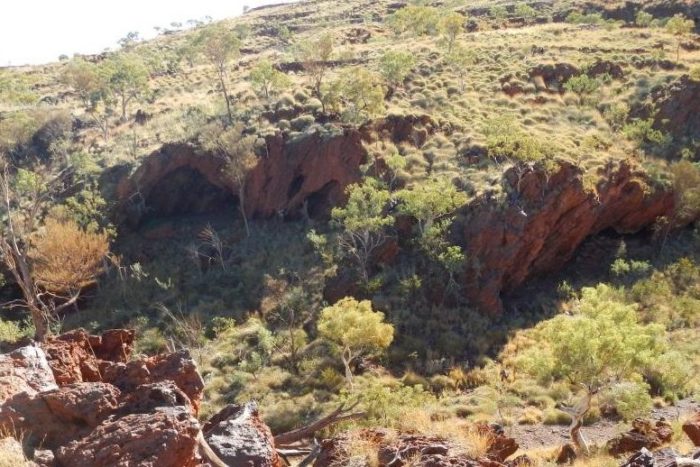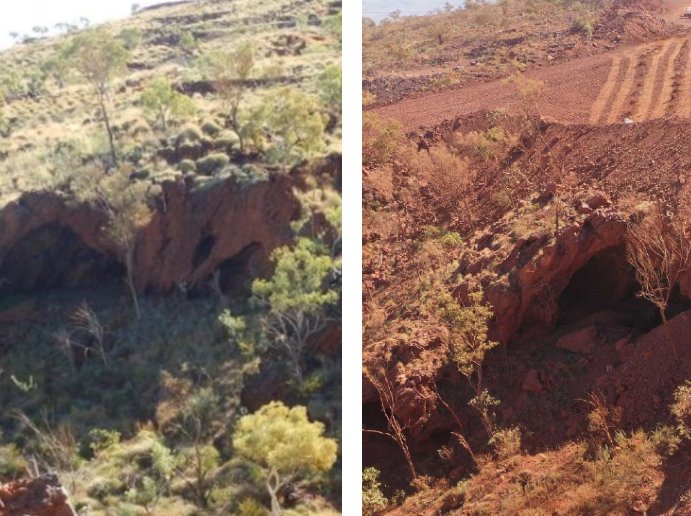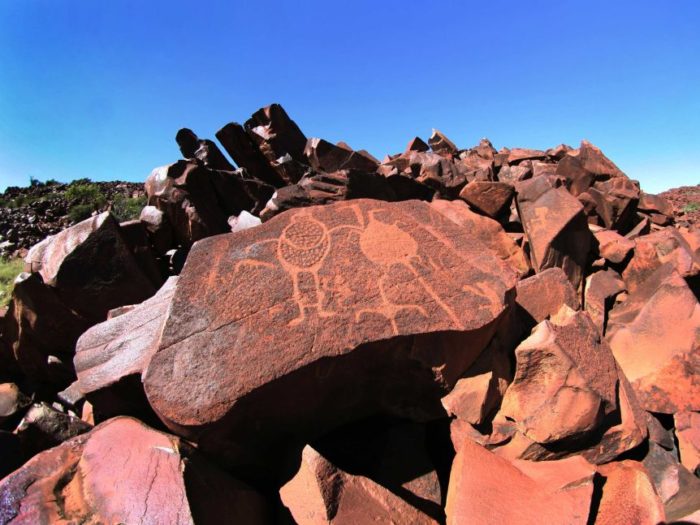
Plans to destroy dozens of sacred sites in Western Australia as part of a major mine operation are on hold. Following backlash over the Rio Tinto’s blasting of two 46,000-year-old sacred Aboriginal caves in the Pilbara in late May.
WA’s Aboriginal Affairs Minister Ben Wyatt said on Twitter last week the blast was a “terrible outcome,” resultant from legislation that did not acknowledge the value of heritage.
The WA Government has described Section 18 of its Aboriginal Heritage Act 1972, as outdated and they have been reviewing the legislation for some time. There was a review of the Aboriginal Heritage Act in 2011 it resulted in two rounds of public consultation, which lead to the WA Government to release the Aboriginal Heritage Amendment Bill in June 2014. The Bill lapsed in Parliament in November 2016.

Rio Tinto’s Iron Ore Chief Executive Chris Salisbury apologized “for the distress caused”, to the Puutu Kunti Kurrama and Pinikura People (PKKP). They are reviewing plans under the current agreement implemented from 2011, of all other sites in the Juukan Gorge area. Rio acknowledges the need to launch a comprehensive review from a heritage perspective working with Traditional Owners to help understand, recommend, and identify ways to improve their processes. They are used to working with processes.
“At Juukan, in partnership with the PKKP, we followed a heritage approval process for more than 10 years. In 2014 we performed a large-scale exercise in the Juukan area to preserve significant cultural heritage artefacts, recovering approximately 7,000 objects.”
Rio was the first mining company to recognize native title three decades ago. On June 12, Rio Tinto’s Chief Executive Jean-Sebastien Jacques said they support the WA Government in the reform of the Aboriginal Heritage Act 1972 (WA). They are committed to engaging with the rest of the mining industry, traditional owner groups, the state, and federal governments. Their first priority is rebuilding trust with the PKKP. They plan to continue working in partnership and creating shared value with Aboriginal and Torres Strait Islander communities around operations across Australia.

In a statement from another mining giant, BHP, they plan to take a more sustainable approach in their operations and work with the traditional owners of the land, minimize and manage the heritage impacts cooperatively. They also pledged to support the WA Government to reform the Aboriginal Heritage Act.
“We will not disturb the sites identified without further extensive consultation with the Banjima people. That consultation will be based on our commitment to understanding the cultural significance of the region and on the deep respect we have for the Banjima people and their heritage. This will include further scientific study and discussion on mitigation and preservation. We have a strong relationship with the Banjima community built over more than 20 years of engagement and consultation in the Pilbara. This relationship is of fundamental importance to our organisation.”
The Aboriginal Heritage Act 1972, is currently under review with a formal announcement of changes to the Act planned for later this year.
“Rio Tinto’s Iron Ore Chief Executive Chris Salisbury apologized ‘for the distress caused’, to the Puutu Kunti Kurrama and Pinikura People (PKKP).”
I was going to comment on this horrible non-apology, but I can’t actually find the source for that quote in any of the linked material. I hope the source articles were just changed, because making up quotes, even if they do appear to reflect the sentiment expressed, is 100% not okay. The tone of the news-style posts here always throws me off a bit (these posts aren’t winning any awards for journalistic quality), but please at least keep things accurate.
As for the apparent apology itself (which is paraphrased, not quoted), this is frankly worse than just saying nothing. Rio Tinto is basically saying “sorry we got caught”, while failing to even acknowledge their actual mistake.
Chaos215bar2,
I appreciate your comments, thank you.
To clear up any confusion I’ve inserted links to the original sources (Rio Tinto website) of the apology and the quote we used, which we inserted verbatim.
I also take on board your comments with regard to our reporting style. We ask all our writers to report from a flat, neutral, and unbiased perspective, whatever their personal opinions may be. I believe the author did a great job here bringing attention to a controversial issue, reporting just the accurate facts.
Hope this helps,
Steven Agar
SnowBrains Editor-in-Chief